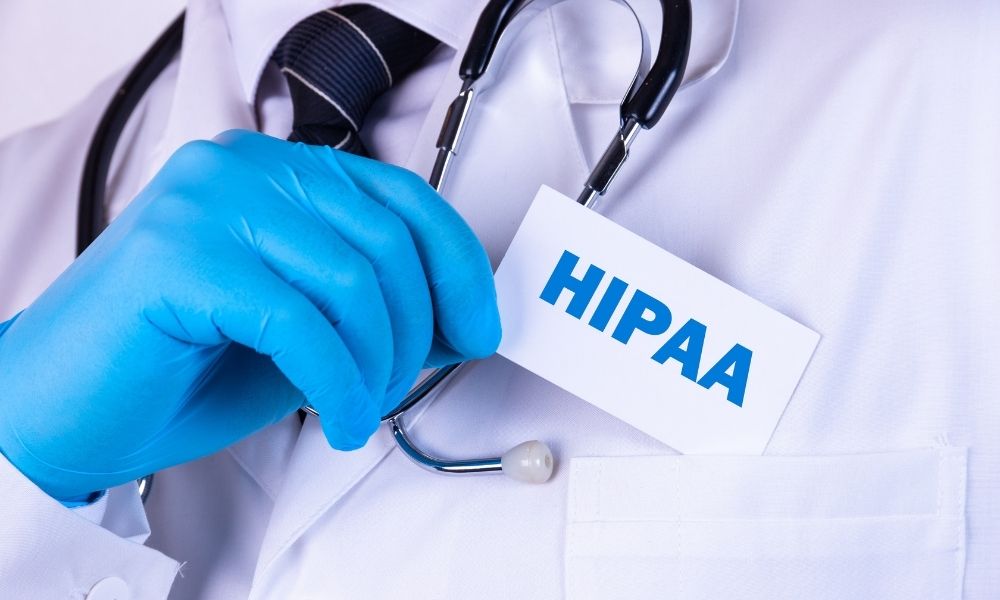In this age of technology that is digital, the security of sensitive information has become a top priority for all businesses. Health Insurance Portability and Accountability Act provides strict guidelines in the healthcare sector for the management of storage, handling, and protection of protected medical data (PHI). HIPAA compliance is crucial for healthcare organisations to protect privacy and avoid penalties. It also helps maintain the trust of their customers.

HIPAA law covers healthcare providers such as health plans, health insurance companies, healthcare clearinghouses, as well as business associated with HIPAA-covered entities. PHI refers to any data that can be used to identify a person, such as names and addresses, credit cards information, social security numbers, and details of medical procedures and conditions. PHI is extremely important in the black market due to its potential use in fraud involving identity.
The HIPAA Privacy rule defines guidelines for disclosure and use of health-related personal information (PHI). The covered entities must implement policies and procedures that protect the confidentiality, integrity and accessibility of electronic health information (ePHI). These policies should include access controls, security incidents procedures, security training, and any other security measures. The entities must also be obliged to limit the use and disclosure of personal information to only the information needed to fulfill the intended goal.
HIPAA’s Security Rule requires organizations covered by the rule ensure the confidentiality and integrity of ePHI using reasonable and suitable physical and administrative security measures. These safeguards include audit controls, integrity checks, transmission security plans, and contingency plans. Entities covered by the policy must periodically conduct risk assessments to detect potential weaknesses and then implement measures to minimize the dangers.
The HIPAA Breach Notification Rule obliges covered entities to notify the affected individuals, the Secretary of Health and Human Services and in some instances the media of any security breach involving unencrypted PHI. The term “breach” refers to an acquisition or disclosure or the use of PHI that violates the Privacy Rule and threatens its security or privacy. To determine the probability that PHI may be at risk, and the potential harm from a breach, covered organizations must conduct an assessment of risk.
HIPAA obliges all employees to receive continuous education and training to make them aware of their responsibilities and obligations in relation to security and privacy of patients. The covered entities also have to conduct regular risk assessments to identify vulnerabilities and implement mitigation measures. These could include the implementation of security controls and encryption of ePHI or creating contingency plans in case of any security incidents that could occur.
In the modern age, technology has made an enormous impact on nearly all aspects of life, including health. Electronic health records are an innovative tool that allows healthcare providers to manage and store the patient’s information in a seamless manner. However the technology has led to significant cybersecurity risks, making an absolute compliance with HIPAA guidelines mandatory. The information of patients must always be secured. The importance of HIPAA is greater than ever, due to the growing risk of cyberattacks. HIPAA helps ensure the privacy and security of patient data, thereby improving trust of patients with healthcare providers.
HIPAA compliance can help healthcare institutions to ensure patient privacy and keep the trust of patients. Failure to adhere to HIPAA regulations can lead to substantial fines, legal actions as well as reputational damage. Office for Civil Rights of Department of Health and Human Services (OCR) enforces HIPAA rules and is able to investigate complaints and review compliance.
HIPAA Compliance is Essential for healthcare providers to safeguard Patient Privacy in the Digital Age. The HIPAA regulations offer specific guidelines for how to handle, store and handle private health information. Healthcare providers must ensure they are following policies and procedures to ensure compliance with HIPAA regulations, conduct regular risk assessments, and provide continuous training and education for employees. They can avoid financial and legal penalties by maintaining trust among patients.
For more information, click why is hipaa important
